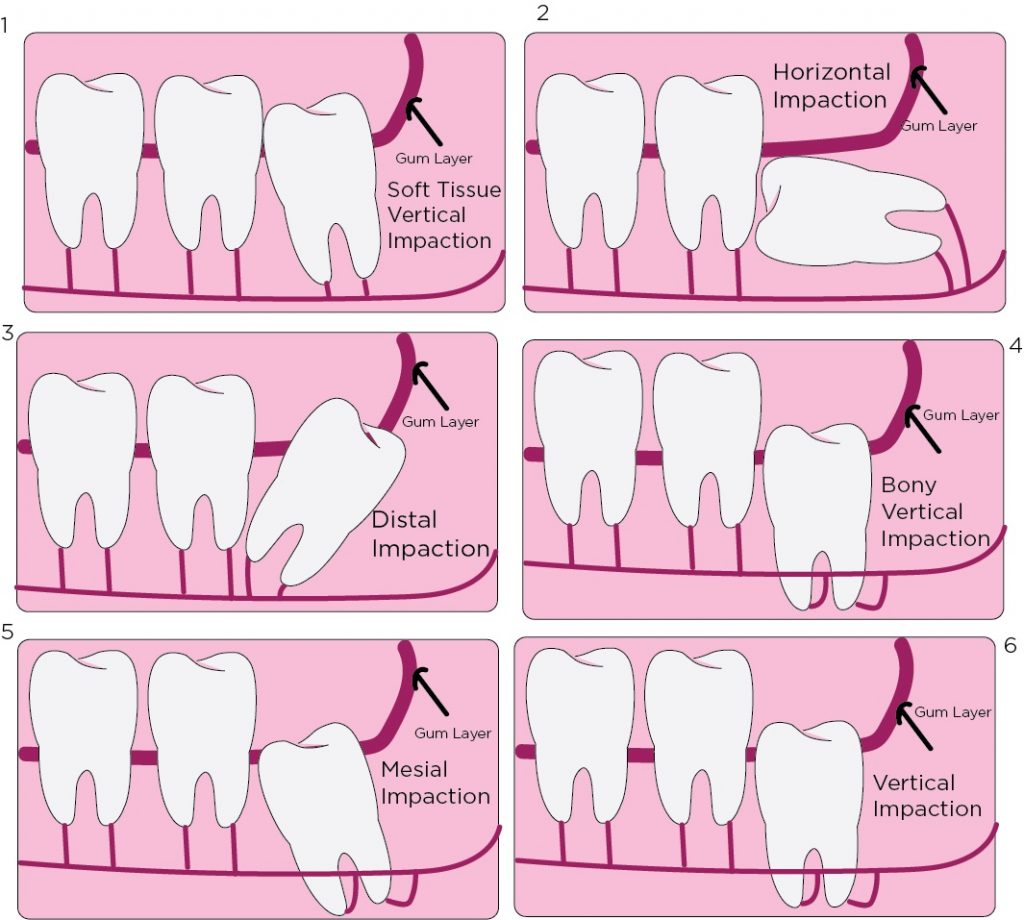Your family dentist recommends that your teenager sees an oral surgeon for removal of their wisdom teeth. But what if they aren’t experiencing any pain or problems with them right now?
Although pain is an important factor in determining whether or not wisdom teeth – also known as third molars – should be removed, it’s not the only factor. As is the case with many dental concerns, pain-free does not mean problem-free. Here’s what you need to know.
Impaction
One of the most common justifications for wisdom tooth removal is wisdom tooth impaction, which is when the teeth do not have enough room to erupt fully and are therefore impacted in the gums (also called soft tissue) and/or bone. Wisdom teeth can be impacted vertically, horizontally, and angularly. Depending on the direction the tooth is leaning, impacted angular teeth are called distal or mesial.

Increased Risk for Dental Problems
In addition to tooth impaction, wisdom teeth are removed because they tend to be problematic when left in the mouth. Retained wisdom teeth pose an increased risk for various dental problems, including:
- Chronic infections
- Gum disease
- Tooth decay
- Altered bite and/or loss of jaw integrity, due to wisdom teeth pushing adjacent teeth out of alignment
Earlier is Better
The roots of wisdom teeth are usually not fully developed until age 21 or later, so it is common to have the teeth removed as a teenager or young adult while the roots are still forming. Once fully formed, wisdom teeth roots continue to grow and are more likely to become tangled with sensory nerves in the lower jaw and/or sinuses.
The Bottom Line
All wisdom teeth don’t need to be removed, but they all need to be managed – closely. As always, talk with your dentist about any dental concerns you have, including whether removing your child’s wisdom teeth makes sense.






